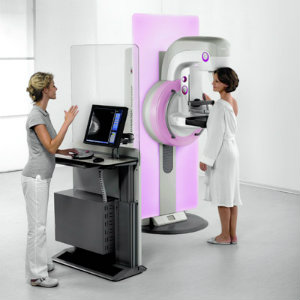Mammography has been considered a reliable screening test for breast lumps. It has become a crucial diagnostic tool for the early recognition of breast cancer. Nevertheless there are situations when the test has its limitations, which is especially true for women who have very dense breast tissue.
Dr. Martin Yaffe, PhD, a biophysics professor at the University of Toronto and Women’s College Health Sciences Center has done the groundwork for digital mammography, and 20 years of research and development have finally paid off. For women who have dense breast tissue, digital mammography will be the superior diagnostic tool, as opposed to the conventional film mammography. In a study that involved 42,760 patients who were asymptomatic both film mammography and digital mammography were used for screening. In the general study population the accuracy of the two methods was found to be similar. In the group of women under 50 years of age the digital method showed significantly more accuracy (84% vs. 69%). Accuracy for women with dense breasts was also higher with the digital method (78% vs. 68%). It also was superior for premenopausal women (82%vs.67%).
The digital equipment used was still in its development stages, and the potential of the technology will become even greater with more sophisticated equipment down the road. At this point it is not cost effective to use the digital method for all women. The digital system costs between one and a half to four times as much as the film systems.
“There is certainly no indication that digital is any less accurate than film mammography, but certainly the benefit is in a defined subgroup of women at this time,” states Dr.Yaffe. For most women film mammography remains a method that works well.
More information about breast cancer: http://nethealthbook.com/cancer-overview/breast-cancer/breast-cancer-diagnosis/
Reference: The Medical Post, October 4, 2005, page1, 62
Last edited November 2, 2014






